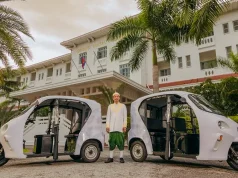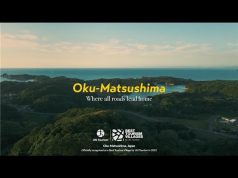
Searching for Sustainability
Based on Booking.com’s Sustainable Travel Report 2023, 76% of the 33,000 travellers surveyed indicate they want to travel more sustainably, 74% believe people need to make more sustainable choices to save the planet for future generations, and 53% say recent news about climate change has influenced them to make more sustainable travel choices.
It’s as Easy as a Click
The online reservation giant, Booking.com has an easy solution with their Sustainability Badge program which recognizes environmental efforts of over 500,000 accommodations around the world. A collaboration with industry experts such as Sustainalize, identified five key areas that would make the most impact: waste, energy and greenhouse gases, water, supporting local communities, and protecting nature. This led to the creation of 32 specific sustainability practices to strive for such as eliminating single-use plastic amenities, converting to LED lights, or investing into local community and conservation projects.
Look for the Leaf
When searching accommodation on the Booking.com website, a leaf icon indicates green practices are in place. Level One, with one leaf icon, illustrates that some sustainability practices are in place. A Level Two indicates considerable investments and efforts to implement impactful sustainability practices have been made, while Level Three, the top tier identified by three leaf icons, is reserved for accommodations who have made large investments and efforts and achieved the goal of 32 sustainability features.
Shining Green Example
In Vancouver, British Columbia, the lauded Fairmont Pacific Rim is the recipient of a Booking.com’s Level Three Sustainable Travel Badge and a shining green example of eco-friendly initiatives. A recent milestone for the trailblazing hotel was the elimination of non-essential single use plastics. Reusable fabric bags were traded for the 12,500 plastic laundry bags used each year, glass water carafes are in guest rooms, and aluminum water bottles are distributed to cyclists rather than the plastic version. The hotel also sourced bamboo toothbrushes and razors, shower caps derived from compostable cornstarch, and perhaps most noteworthy, diverted over 36,000 plastic key cards with re-usable cherry wood replacements certified by the Forest Stewardship Council. Guests are also encouraged to minimize their carbon footprint and use the complimentary BMW bicycles and e-bikes to explore the city.
Local & Low Impact Dining
The award-winning restaurant and bar, Botanist, boasts close to zero waste in their kitchen. Only Ocean Wise sustainable seafood is served and Local Harvest, a farm in Chilliwack renown for its regenerative farming practices, provides fresh produce. Excess food from meetings and events is donated to Second Harvest program, and last year over $12,000 worth of food was donated which provided 3,000 meals to charities.
The Goal? Responsible Travel for Now and Future Generations
Sustainable travel benefits the planet and the community. More and more travellers are looking for experiences that align with their quest to be a responsible traveller and provide meaningful and eco-friendly experiences. Danielle D’Silva, head of sustainability for Booking.com, said: “As we optimise and develop our travel sustainable programme further, our ambition is to continue making it easier for everyone to make more sustainable choices for their next trip.”





